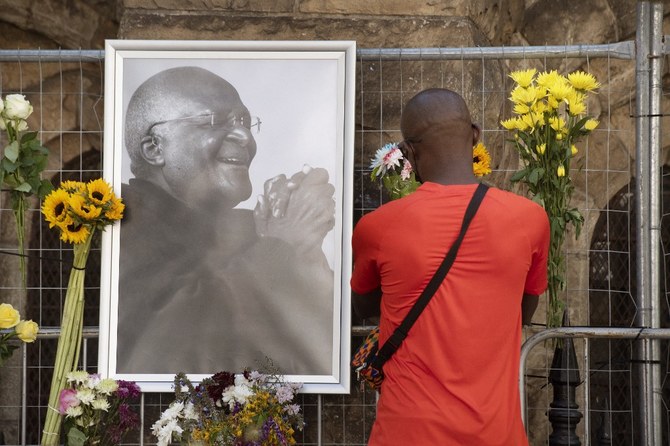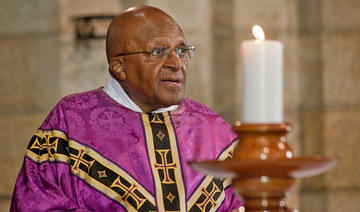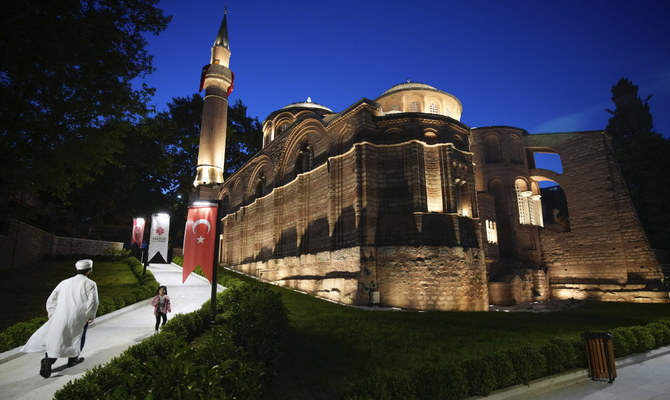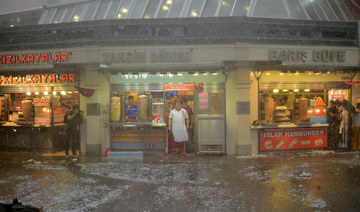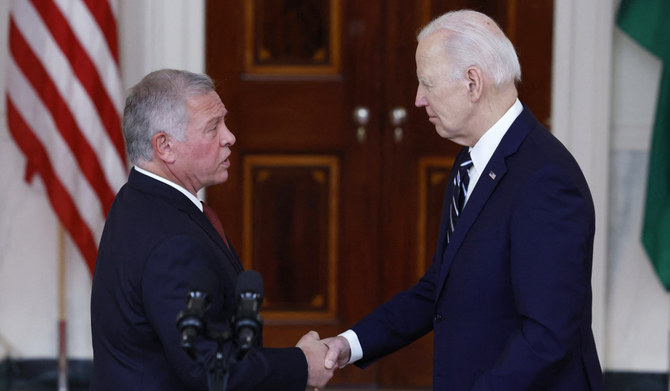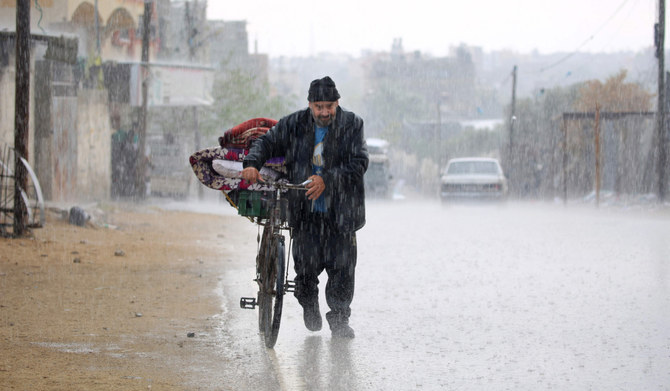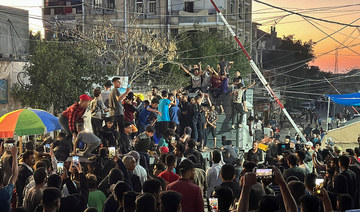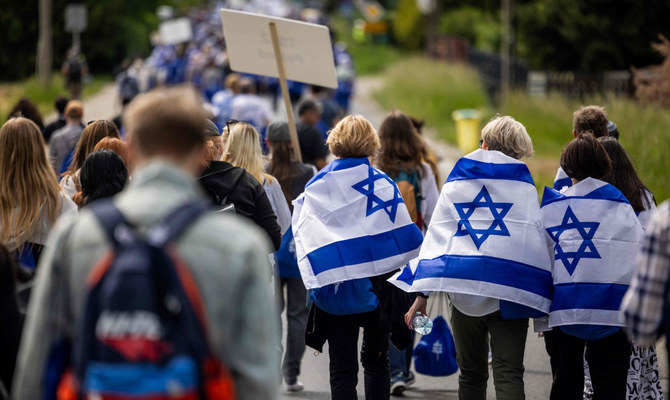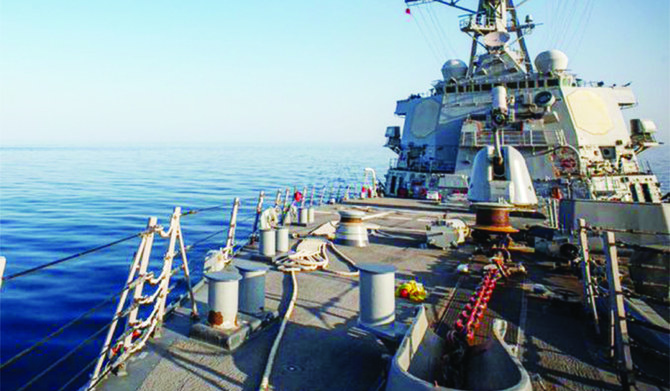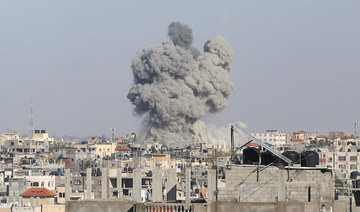AMMAN: Tributes poured in from the Arab world on Sunday after Archbishop Desmond Tutu, an icon of South Africa’s struggle against white minority rule and a tireless campaigner for Palestinian rights, died at the age of 90.
Tutu won the Nobel Peace Prize in 1984 for his non-violent opposition to apartheid, and later chaired a Truth and Reconciliation Commission to heal the country’s wounds.
He also spoke out fearlessly on a range of moral issues, condemned George W. Bush and Tony Blair for the invasion of Iraq, and was an outspoken critic of the Israeli occupation of Palestine and the siege of Gaza.
“I wish I could keep quiet about the plight of the Palestinians. I can’t!” he said in 2013. “What’s being done to the Palestinians … it’s the kind of thing we experienced in South Africa.”
In 2014 Tutu declared his support for the boycott, sanctions and divestment campaign against Israeli occupation. “Those who continue to do business with Israel, who contribute to a sense of ‘normalcy’ in Israeli society, are doing the people of Israel and Palestine a disservice,” he said.
Tutu was “a hero for serving humanity and its causes, a fighter against apartheid, a global human rights activist, and a defender of the oppressed,” Palestinian President Mahmoud Abbas said.
“The Palestinian people will remember with loyalty and gratitude his positions in support of our people’s legitimate struggle against the occupation and its racist policy.”
Dr. Muhammad bin Abdul Karim Al-Issa, secretary-general of the Muslim World League, said Tutu’s fight against apartheid was “a powerful and inspiring voice for truth and justice, and a step in the march of mankind toward equality and human dignity.”
He said: “Archbishop Tutu was steadfast in principle, friendly, smiling, calm, inspiring everyone to carry the message of peace with love, and to face challenges with courage, patience and determination, to struggle for the victory of truth and justice, rejecting any violence and hate.”
Other leading Palestinian figures also paid tribute to Tutu.
Ahmad Deek (director-general of the Palestinian Foreign Ministry): “As Palestinians, we are in bad need of giants in humanity such as this symbol for the fight against racism and apartheid including the apartheid applied to our people. His loss is a loss for South Africa and Palestine. He was a sincere friend and defender of our people’s rights.”
Riyad Mansour (head of the Palestine Mission to the UN): “He was a stubborn fighter against apartheid. He was humble and he lived all his life in Soweto, the biggest and poorest neighborhood in South Africa. He was a sincere friend of the Palestinian people and a defender of Palestinian rights. We will not forget him, his place will be with the great people, like our late leader Yaser Arafat.”
Bishop Atallah Hanna of Jerusalem: “He was a friend of the Palestinians and defended the Palestinian cause. We remember fondly this man who fought against racism, whether in South Africa or anywhere else in the world ,including in the occupied territories. We send our condolences to his family and friends. I met him numerous times and he was always supportive of Palestinians. His name will always be remembered for his rejection of racism and apartheid, including in Palestine.
Jonathan Kuttab (Human Rights attorney and co-founder of Mandela Institute for Political Prisoners): “He had a constant smile and very infectious laughter, and good humor even when talking about serious things. He was not afraid of upsetting people, including his own ANC, and spoke against Israeli policies even when he was talking in America and among liberal Jews who didn’t like to hear what he had to say. He said when he visited Beit Sahour that it reminded him of except, it was worse. He was willing to say those things even when the so called peace process was at his highest and it was not possible to be critical of Israel and its occupation.
He combined his humanity with his principle and integrity.”
Hanan Ashrawi (former member of the PLO executive committee): “Palestine mourns the passing of Desmond Tutu, whose humanity and compassion were equalled only by his courage and principled commitment in our shared struggle for justice and freedom. His support for Palestine was an embrace of love and empathy. I’m honored to have had him as a friend.”
Issa Amro (founder of Youth Against Settlements in Hebron): “Bishop Tutu fought against apartheid and history will remember him for his struggle. We have learned a lot from him about courage and strength in the fight against racism in all its forms. He fought for human rights and dignity not only in South Africa but also around the world, including Palestine, and this is a big loss for the Palestinian people. He was a model to us in the nonviolence movement. I visited him in South Africa and we have applied many of the lessons from them.”
Lamis Andoni (Palestinian-Jordanian analyst): “He was a model and inspiration and fighter for freedom and justice around the world. He was an exemplary humanist and fighter for injustice in South Africa against apartheid, and in Palestine against occupation and apartheid. His compass was freedom and justice for all regardless of race, religion, gender, class, or ethnicity. I hope that many generations will learn from his example in resilience, his courage, and his deep commitment.”
Vera Baboun (former Mayor of Bethlehem): “People around the world, and Palestinian people in particular,who seek freedom lost a friend today. He fought for freedom and justice and he was not shy in speaking truth to power. He was a voice for rights and a voice for faith based on the Bible. The fight for freedom will continue after his departure. He was the conscience of the world and the genuine defender of human rights. Our condolences to all those who loved him.”



